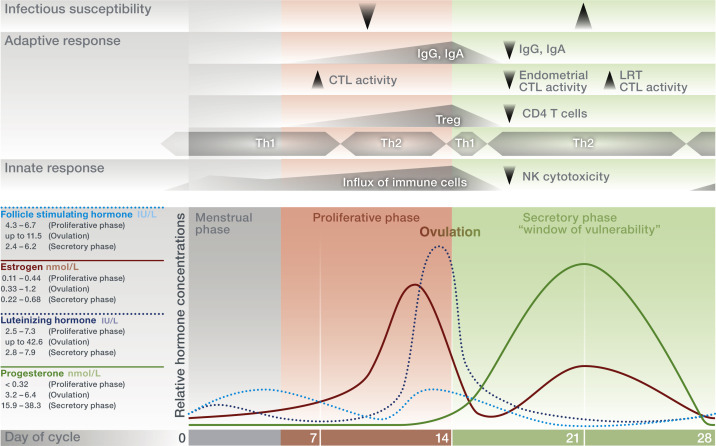Figure 5.

The female menstrual cycle influences local immunity. Alternating hormone levels regulate the functions of the female reproductive tract to allow fertilization and implantation. In the proliferative phase, during which the endometrial lining is reconstituted, estrogens are predominant and their levels rise, resulting in ovulation and the onset of progesterone synthesis. After ovulation, the corpus luteum produces both progesterone and estrogens, both of which control local processes in preparation for a potential pregnancy. In the absence of fertilization, corpus luteum degrades, inducing inflammatory degradation of the endometrium and the onset of menses. Local immunity changes with fluctuating hormone levels, resulting in an increased susceptibility to viral and bacterial infectious diseases during the secretory phase. LRT, lower reproductive tract; CTL, cytotoxic T lymphocyte; Ig, immunoglobulin; NK, natural killer cell; Th, T helper 1 or 2–mediated immune response; Treg, regulatory T cell.
